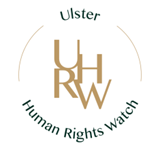Perpetrators of terrorist atrocities, who have injured, maimed and murdered innocent people could hardly dream of a better status under the law, as to be put on an equal footing with their victims.
Hence, the deep concern following the recently publicised NIO proposals analysis of the 17,000 responses that were received as a result of the consultation on ‘Addressing the Legacy of Northern Ireland’s Past’, which ended on October 5 last.
Among the many issues raised by respondents, two are of particular unease to the Ulster Human Rights Watch (UHRW) Advocacy Service and other victims and survivors groups: the definition of a victim and the unfairness of the proposed institutions, particularly the Historical Investigation Unit (HIU), towards former members of the police and armed forces.
The present Victims and Survivors (Northern Ireland) Order 2006 ‘interpretation’ of a victim and survivor is all the more unacceptable as it runs contrary to the EU Directive 2012 (2012/29/EU) that obliges the United Kingdom to bring its own legislation into compliance with it.
The EU Directive provides a ‘definition’ of a ‘victim of crime’, namely ‘a natural person who has suffered harm, including physical, mental or emotional harm or economic loss which was directly caused by a criminal offence’.
The definition, which also applies to victims of terrorism but excludes perpetrators, has been implemented in Northern Ireland by the Justice Act (Northern Ireland) 2015 (Section 29).
However, surprisingly, the Victims and Survivors (Northern Ireland) Order 2006 has not been revised to keep in step with the Justice Act and consequently appears to be in breach of the EU Directive definition.
This issue must be urgently addressed by the Secretary of State for Northern Ireland as a matter of priority. A review of the Order 2006 providing a definition of a victim of crime, including a victim of terrorism, that is compliant with the EU Directive, in the opinion of the Ulster Human Rights Watch (UHRW), would dispel immediately the confusion that has been maintained for so long between genuine victims and perpetrators.
It would also enable significant progress to be made in dealing with the past in Northern Ireland.
This equivalence between perpetrators and their victims in the Order 2006 is echoed in the proposed Stormont House Agreement institutions by a parity of treatment between terrorists and members of the security forces.
The distrust expressed by many consultation respondents comes as a result of the Historical Investigation Unit (HIU) proposals being undoubtedly biased against former members of the security forces and most particularly against police officers. Inevitability, as a result, there will be an increase in one-sided investigations against the security forces who keep records of their actions which can be accessed and used against them in contrast with the terrorists who don’t keep formal records and destroy incriminating evidence.
The position of former members of the security forces will be made even worse since the HIU will have the power to carry out, not only criminal investigations, but also non-criminal police misconduct investigations.
This will be patently both unfair and degrading for police officers who may be investigated twice by the same body, while terrorists can only be investigated once for criminal activities.
Consequently those who committed themselves to protecting the community against terrorism and have long since retired may be hauled back into the spotlight to be investigated by the HIU, causing great stress and trauma to both them and their families.
Such investigations will, without doubt, generate stories that will disproportionately draw attention to the actions of the security forces while leaving in oblivion the atrocities carried out by terrorist organisations.
Security forces will have limited means of defending themselves against untrue or biased stories being told against them.
In addition their position will be further aggravated by narratives that will emerge from the Independent Commission on Information Retrieval (ICIR) and the Oral History Archive (OHA), which are tailor made, intentionally or not, for terrorists to tell their stories, while protected from any form of prosecution.
There is little doubt that terrorists and their sympathisers will use the opportunity provided by these three proposed bodies, the HIU, the ICIR and the OHA to blacken the reputation of the security forces, justify their engagement in terrorist activities and glorify terrorism with a view to rewriting the history of Northern Ireland.
They will be assisted in doing so, perhaps unwittingly, by the Implementation and Reconciliation Group (IRG) whose mandate will be to prepare the ground for a final report, based on summary reports of these bodies, and to be delivered by academics after a period of five years.
The Ulster Human Rights Watch (UHRW) strongly believes that dealing with the legacy of the past requires a completely new approach, with the clear three-fold objectives of upholding the rights of victims of terrorism, respecting former members of the security forces and strengthening the hand of the State in the fight against terrorism.
Click here to view published article
